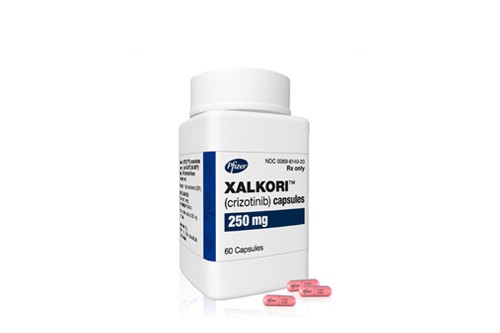
Pfizer’s tyrosine kinase inhibitor (TKI) Xalkori has been granted a priority review by the US Food and Drug Administration (FDA) for the treatment of paediatric ALK-positive anaplastic large cell lymphoma (ALCL).
The FDA submission of Xalkori (crizotinib) in this indication is based on results from two clinical studies – ADVL0912 and A8081013. Across both studies, Xalkori demonstrated encouraging anti-tumour activity with Xalkori in children and adults with ALK-positive ALCL.
The ADVL0912 evaluated the maximum safe and tolerable dose of the TKI, and also investigated the clinical activity of the therapy in children with relapsed or refractory solid tumours and ALCL.
The second study, A8081013 analysed the use of Xalkori in both paediatric and adults patients with advanced malignancies, including those who had relapsed or refractory ALCL.
ALCL is a rare form of non-Hodgkin lymphoma, and is characterised either as ALK-positive or ALK-negative disease. ALK-positive ALCL is the most common type and is a fast-growing lymphoma that causes T-cell mutations.
According to Pfizer, if Xalkori is approved by the FDA, it will become the first biomarker-driven therapy available for the treatment of this form of paediatric lymphoma. Although it often carries high survival rates, paediatric ALK-positive ALCL patients can face a number of challenges in treating their disease.
“Despite high survival rates for children with ALK-positive anaplastic large cell lymphoma, many will relapse, requiring novel treatment approaches,” said Chris Boshoff, chief development officer, Oncology, Pfizer Global Product Development.
“Given Xalkori’s proven efficacy in ALK-positive lung cancer and activity seen in clinical trials investigating relapsed or refractory ALK- and ROS-1 positive anaplastic large cell lymphoma, if approved, Xalkori could represent an important step toward improving outcomes for children with this type of cancer,” he added.
Xalkori is already approved on over 90 countries for the treatment of ALK- or ROS1-positive non-small cell lung cancer, which represents about 3-5% of all NSCLC cases for ALK mutations and less than 2% for ROS1 mutations.
In addition to the FDA priority review, the European Medicines Agency (EMA) has agreed on a paediatric investigational plan for Xalkori, including the treatment of paediatric patients with relapsed or refractory ALK-positive ALCL.




